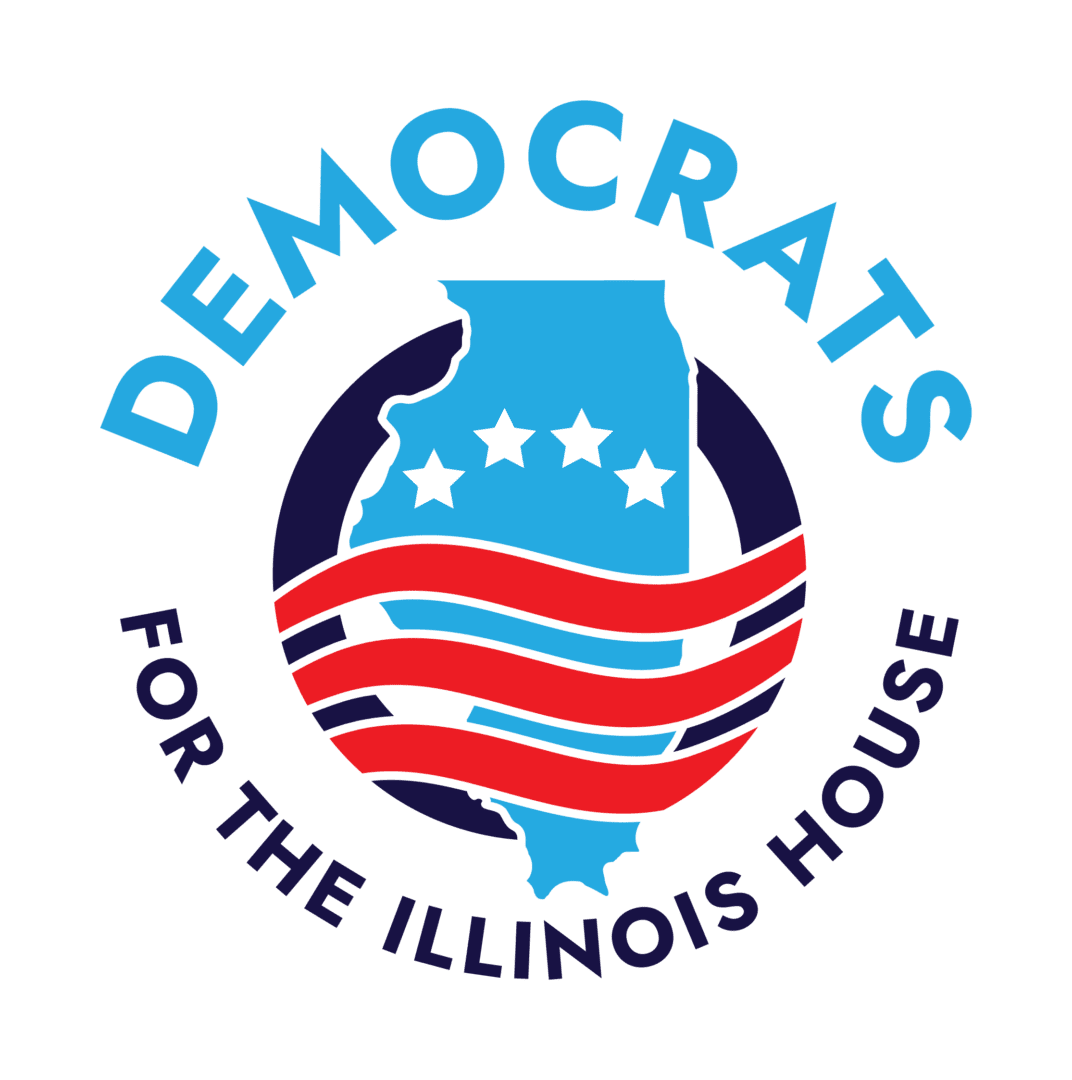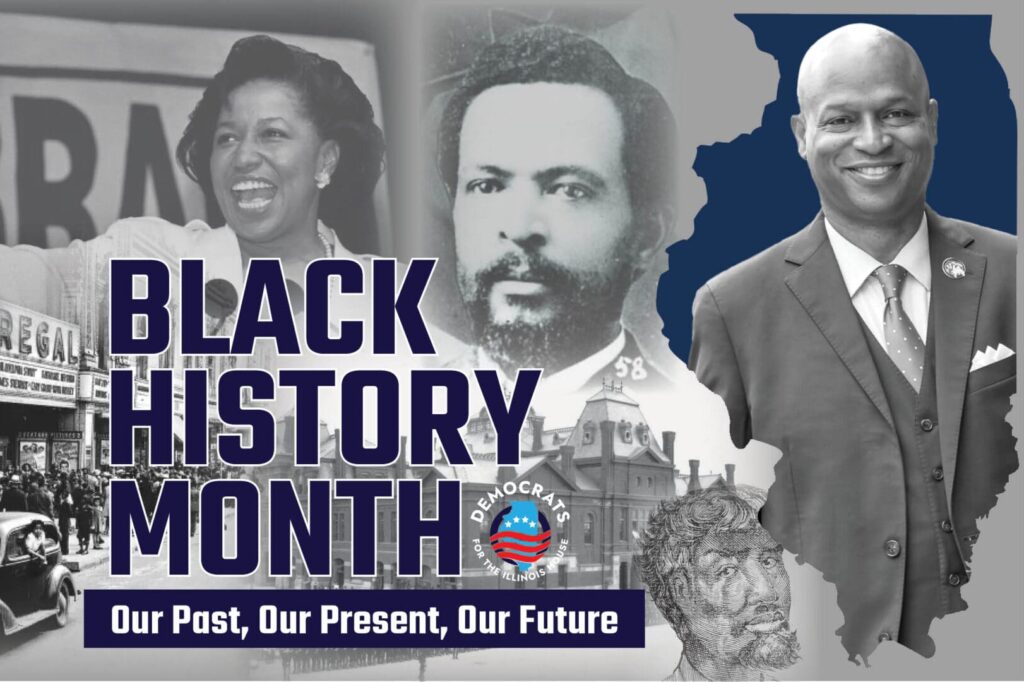
Our Past, Our Present, Our Future: Celebrating Black Leadership and Ingenuity in Illinois History
This year, our Black History Month theme is ‘Our Past, Our Present, Our Future’ because the contributions of African-Americans have crafted our great nation and will continue to be vital as we move forward on the path to progress.
Black history is American history. And while many states are taking drastic steps to erase it from their textbooks, here in Illinois, we embrace it. Throughout this month, we will be highlighting eight of Illinois’ greatest achievements thanks to black leadership and ingenuity.
Jean Baptiste DuSable
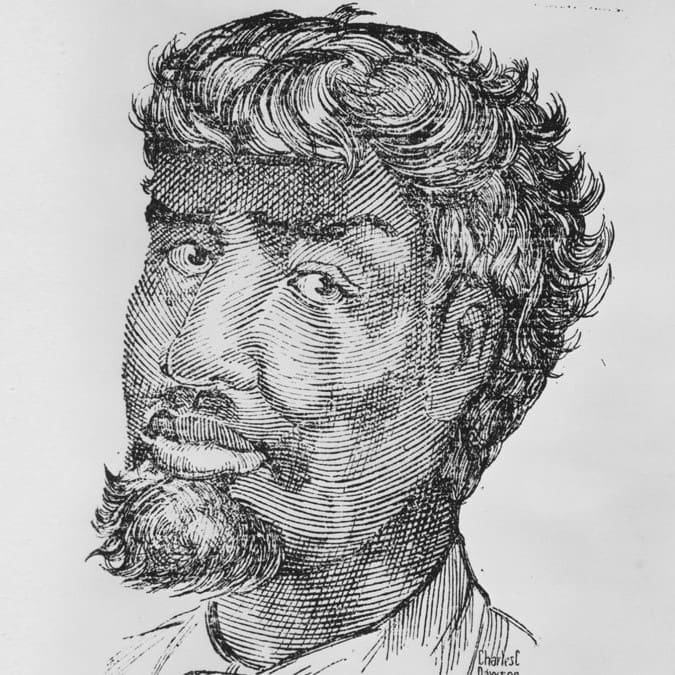
The name Jean Baptiste DuSable may sound familiar, but do you know the true story of the founder of Chicago? Born to a French father and an African slave mother, DuSable was educated in France before heading to America.
He married a Potawatomi woman and they established a lucrative trading post at the mouth of the Chicago River in the 1780s. This post included a dairy, bakery, mill,
workshop, smokehouse and more, cementing DuSable’s place in history as an innovative entrepreneur.
The DuSable Museum of African American History located on Chicago’s South Side is named in his honor as well as many other sites throughout the city.
The Underground Railroad
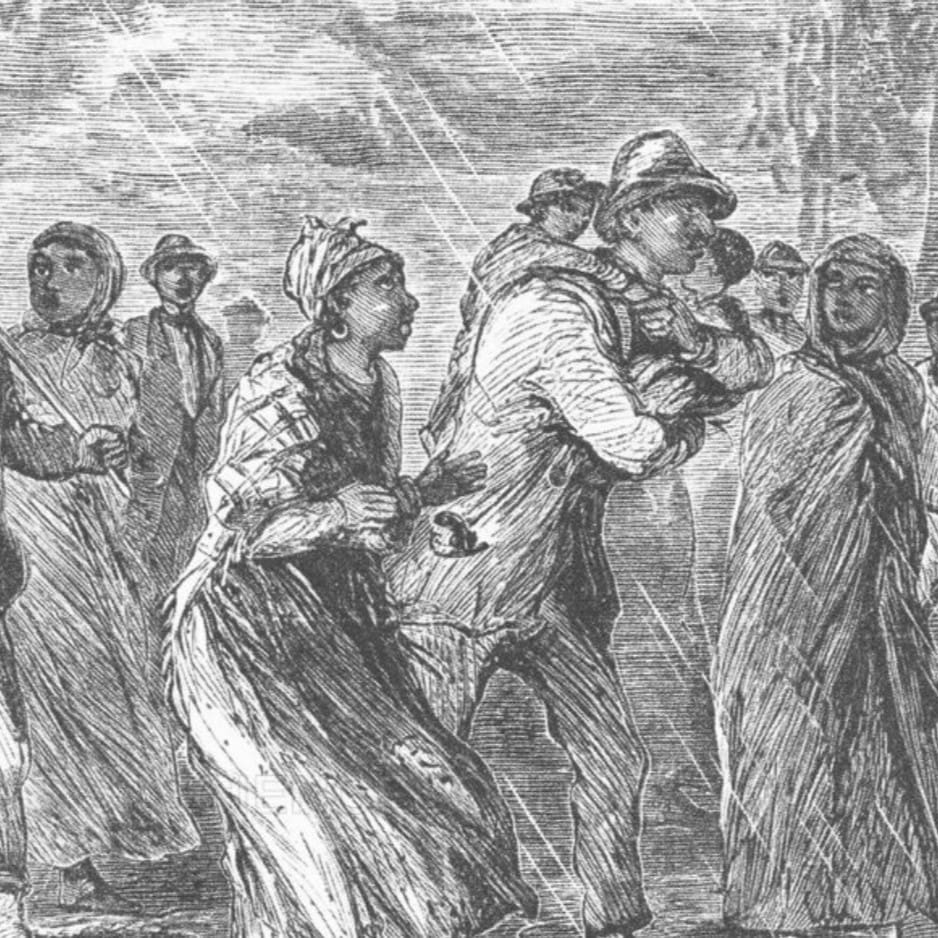
From 1818 to the conclusion of the Civil War, historians estimate more than 8,000 freedom seekers moved into and through Illinois using the Underground Railroad.
Stops and hiding places can be found all across the state from Cairo to Springfield to Chicago. To date, The National Park Service has recognized 25 Illinois sites as part of the Underground Railroad Network to Freedom, but it’s believed there are dozens more.
John W.E. Thomas
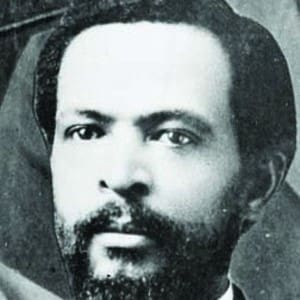
John W.E. Thomas was born into slavery in Alabama and was known to teach other enslaved people to read and write. After the Civil War, he moved to Chicago where he opened a grocery store and a school for black students.
In 1876, John W.E. Thomas became the first African-American elected to the Illinois General Assembly. This made him the first in the Midwest and second in the nation.
In 1885, he was instrumental in passage of Illinois’ first civil rights legislation which prevented discrimination in public accommodations.
8th Infantry Regiment, Illinois National Guard / 370th Infantry Regiment, U.S. Army
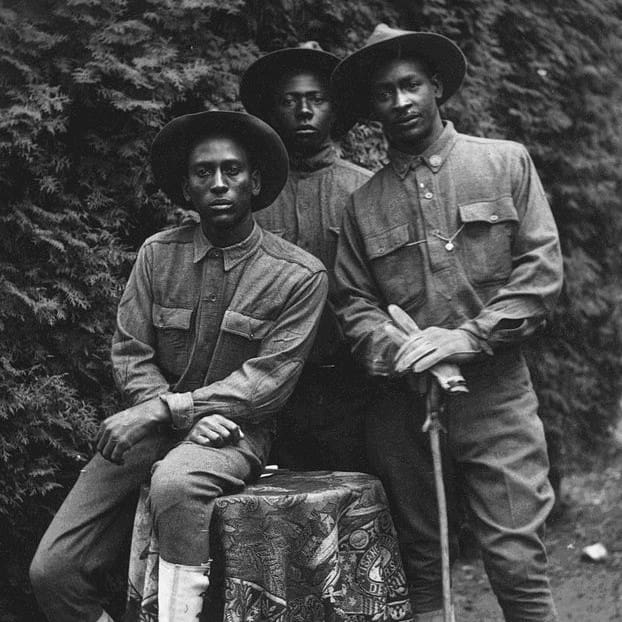
The 8th Infantry was an all-black militia regiment from Illinois first founded in the 1870s. During World War I, the unit was redesignated as the 370th and was the only U.S. Army combat unit commanded by African-American officers.
Members of the 370th were highly decorated. They received 21 Distinguished Service Crosses, one Distinguished Service Medal and 68 Croix de Guerre, a French honor
given to those who perform heroic deeds in action.
A statue known as the Victory Monument was built in 1927 and can still be viewed today in Chicago’s Bronzeville neighborhood.
The Brotherhood of Sleeping Car Porters
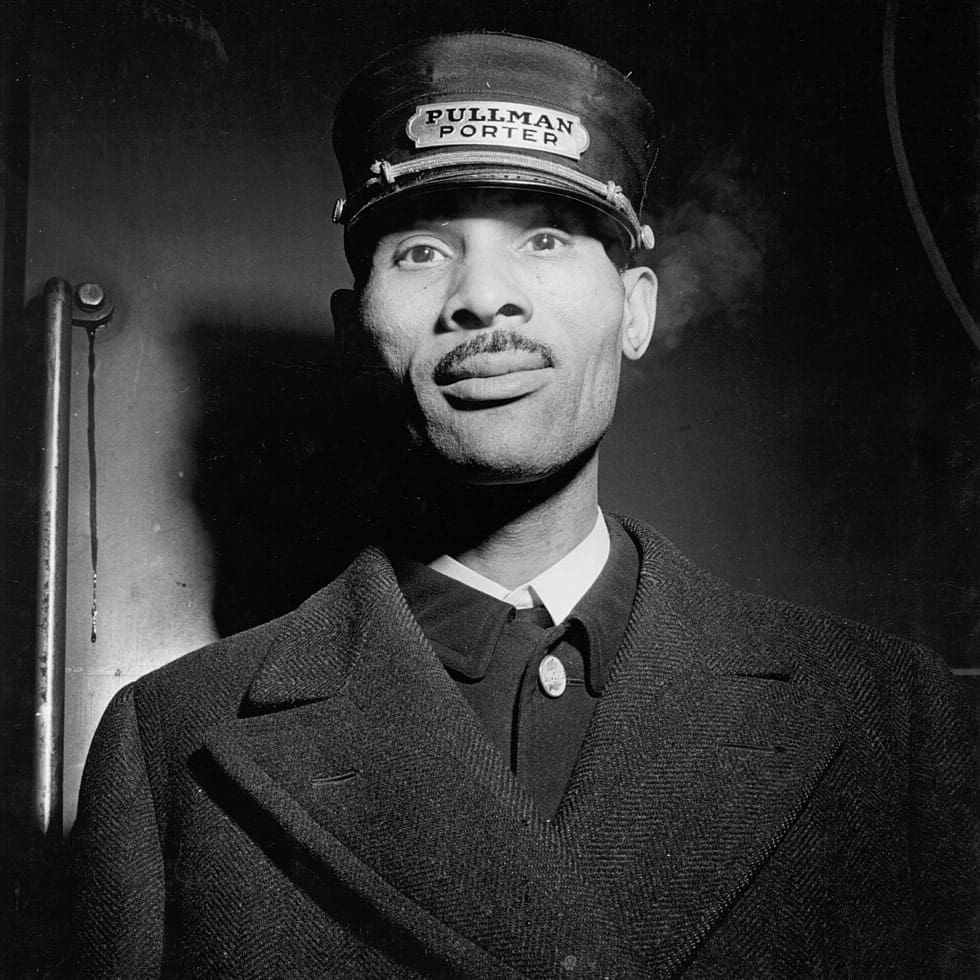
Illinois has a rich history of black labor. In the 1920s, porters for the Pullman Company were fed up with the grueling conditions, long hours, low wages, and rampant discrimination.
For decades, the porters had formed small unions called “brotherhoods” and they began organizing nationwide, using Chicago as one of three main hubs. In 1925, the American Federation of
Labor formally recognized The Brotherhood of Sleeping Car Porters (BSCP), making it the first African-American labor union to receive an AFL charter in our nation’s history.
Today, people can learn more about the history of black labor at the A. Philip Randolph Pullman Porter Museum located on Chicago’s South Side.
The Bronzeville Renaissance
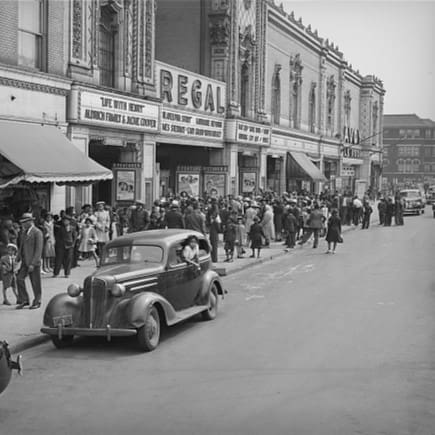
The South Side community of Bronzeville began seeing major growth in the 1920’s when African-Americans relocated to the North and Midwest to escape the oppression of the Jim Crow South.
With this growth came an explosion of cultural development that transformed Bronzeville into an epicenter of black art, music, and business up until the 1950s. It was home to many famous black icons
like Gwendolyn Brooks, Richard Wright, Louis Armstrong, Bessie Coleman, Ida B. Wells, and more.
Today, nine architectural sites remain in this historic community and there is a major push to restore the area to its former glory as a cultural powerhouse.
Carol Moseley-Braun
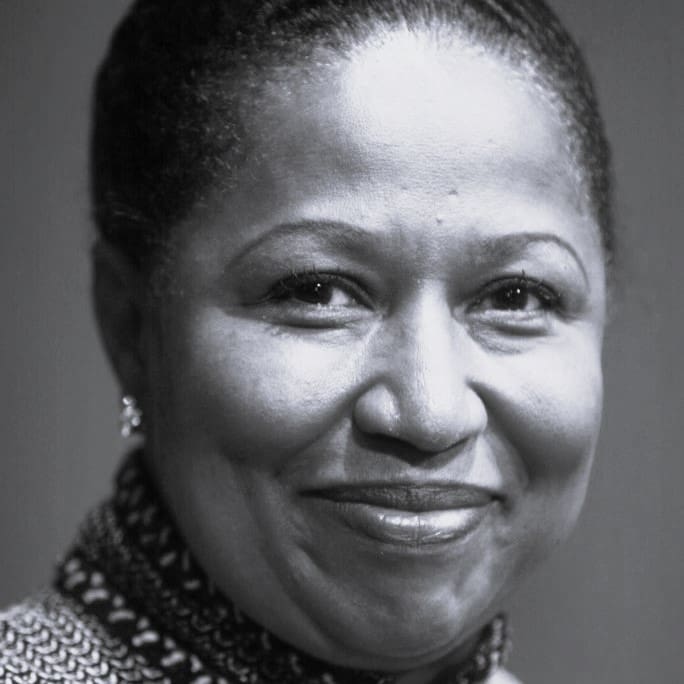
Carol Moseley-Braun was born in Chicago in 1947 and grew up during the height of the Civil Rights movement.
She got her start in public service in 1978 when she was elected to the Illinois House of Representatives. She would go on to become the first African-American woman to serve as assistant majority leader in that body.
In 1992, she made history again as the first African-American woman elected to the U.S. Senate. This also made her first female senator from Illinois. Today, she is the chair of the United States African Development Foundation.
Emanuel “Chris” Welch
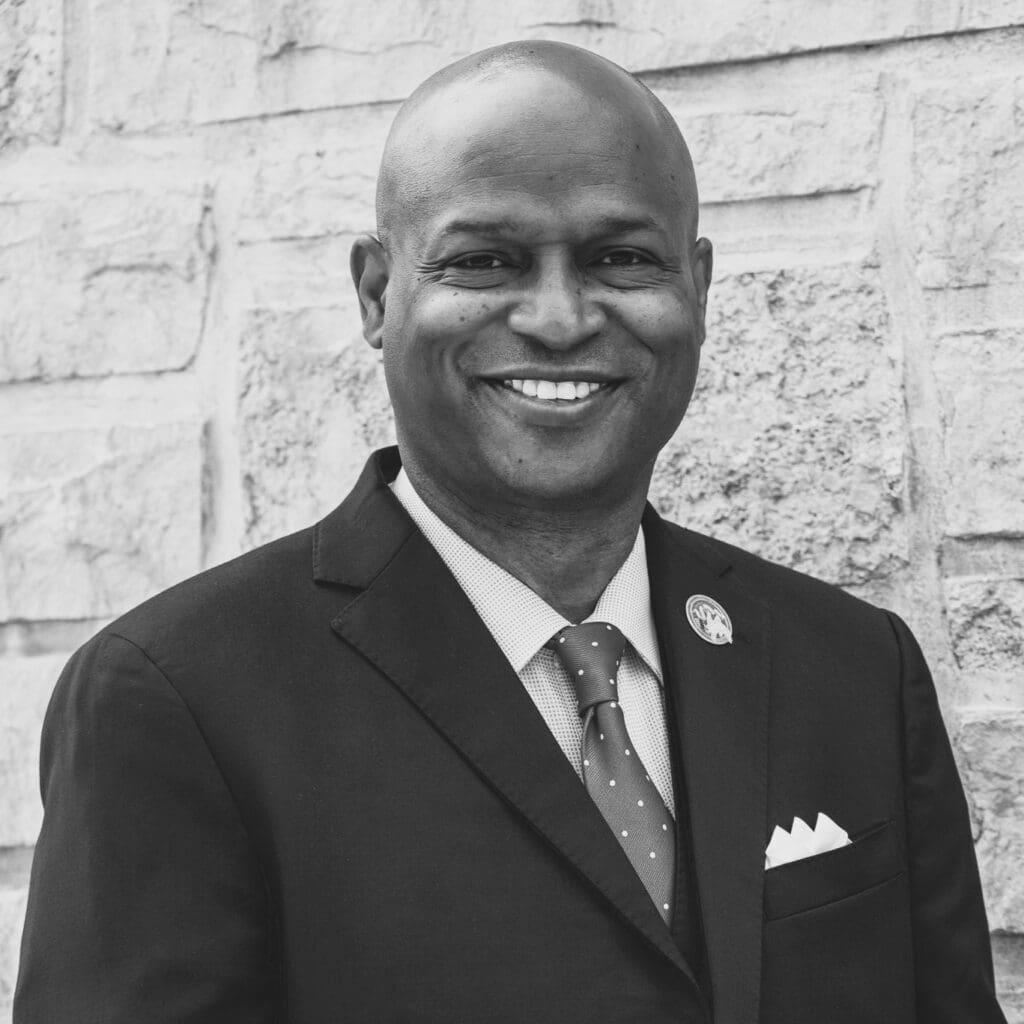
Emanuel “Chris” Welch was first elected to the Illinois House of Representatives in 2013. In January 2021, he became the first black lawmaker to be elected House Speaker.
Since joining the House, he has focused on improving the state’s fiscal health, creating more equity in black and brown communities, delivering more funds for classroom education, and creating
opportunity for all.
In 2022, he led the effort to secure the largest Democratic majority in modern Illinois history. This supermajority, known as the Great 78, is one of the most diverse state legislatures in the nation and has championed legislation that has made Illinois a leader in clean energy, reproductive freedom, and gun violence prevention.
